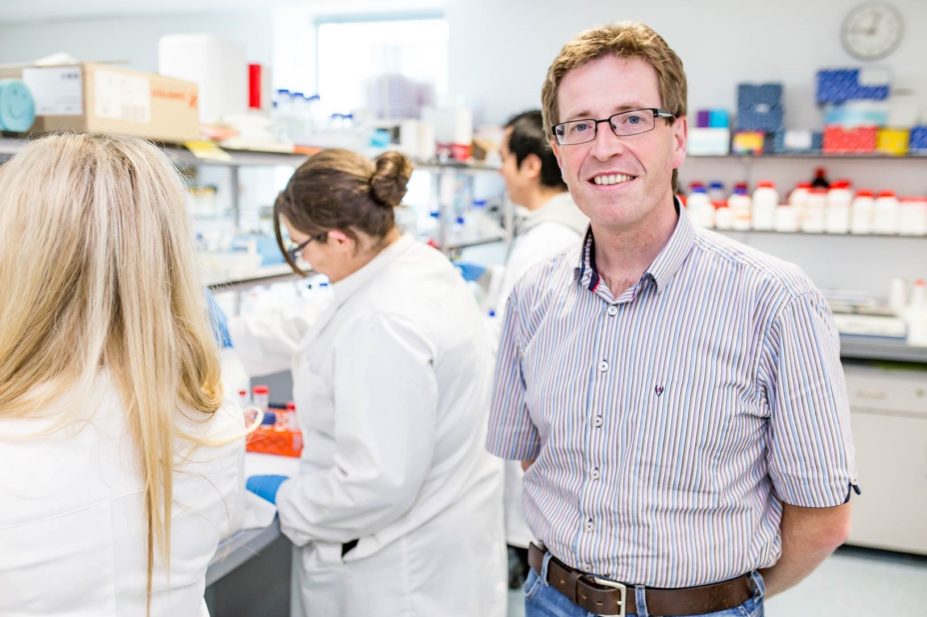
Courtesy of Queen's university, Belfast
Sepsis is a leading cau
se of death in hospitalised patients, yet there is no effective treatment. Around 25% of patients with severe sepsis develop acute respiratory distress syndrome (ARDS), driven by an e
xcessive
immune response, and up to 30% of these patients will die.
However, a promising new anti-inflammatory drug, SAN101, is described in Science Translational Medicine (online, 2 September 2015)[1]
. It is a nanoparticle that targets sialic acid-binding immunoglobulin-like lectins (siglecs) – important negative regulators of acute inflammatory responses.
SAN101 was “therapeutically beneficial” in a mouse model of sepsis and ARDS. Furthermore, it had an anti-inflammatory effect on human macrophages and relieved symptoms of acute lung injury in an ex vivo lung perfusion model. “We are well on the road to developing a new first-in-class treatment,” says Chris Scott, senior author, from Queen’s University Belfast.
References
[1] Spence S, Greene MK, Fay F et al . Targeting Siglecs with a sialic acid–decorated nanoparticle abrogates inflammation. Science Translational Medicine 2015;7(303):303ra140. doi:10.1126/scitranslmed.aab3459.


